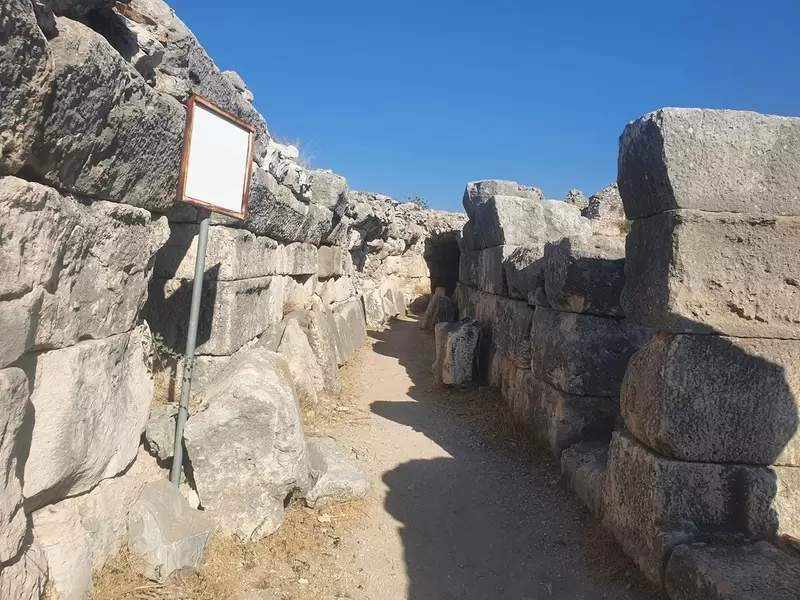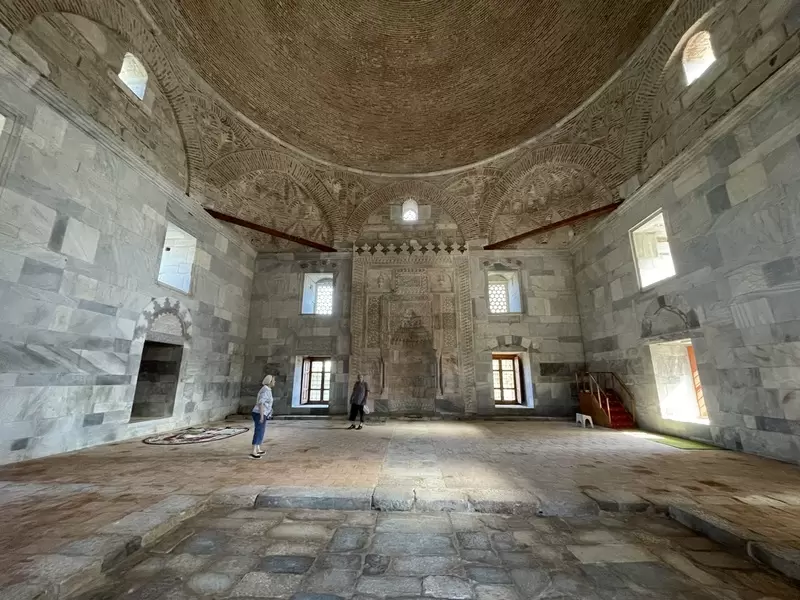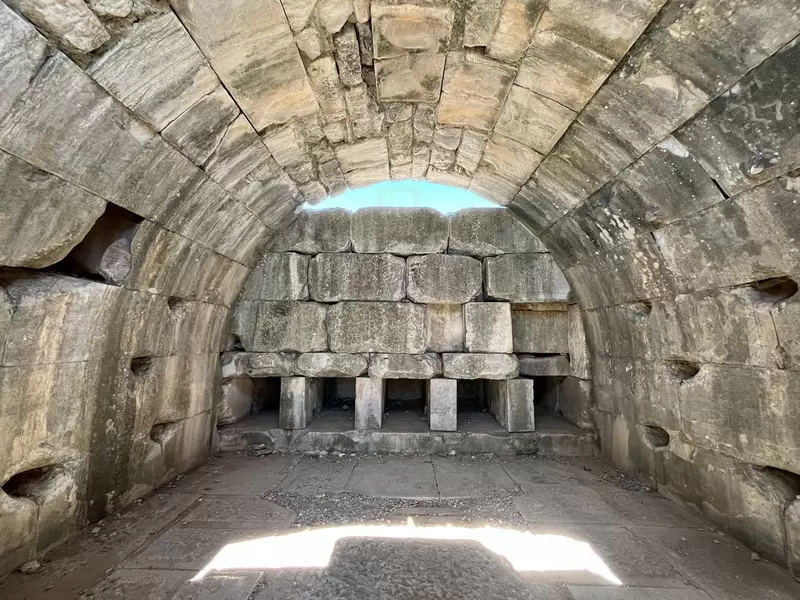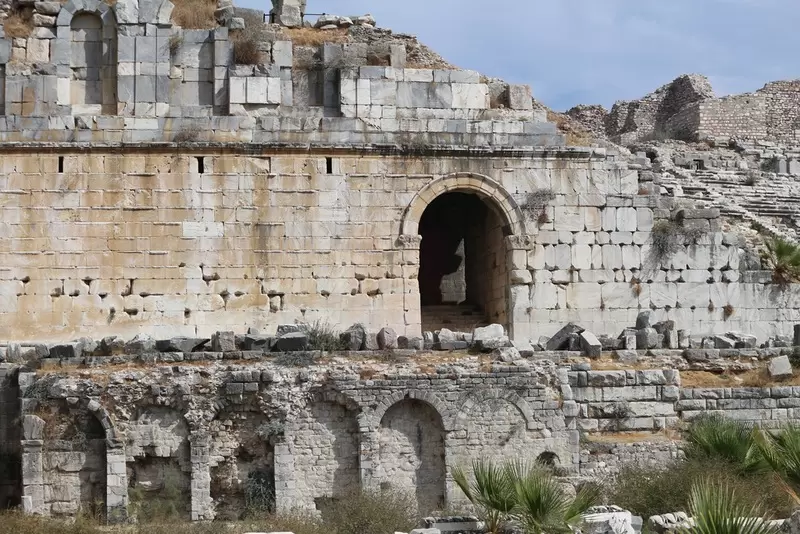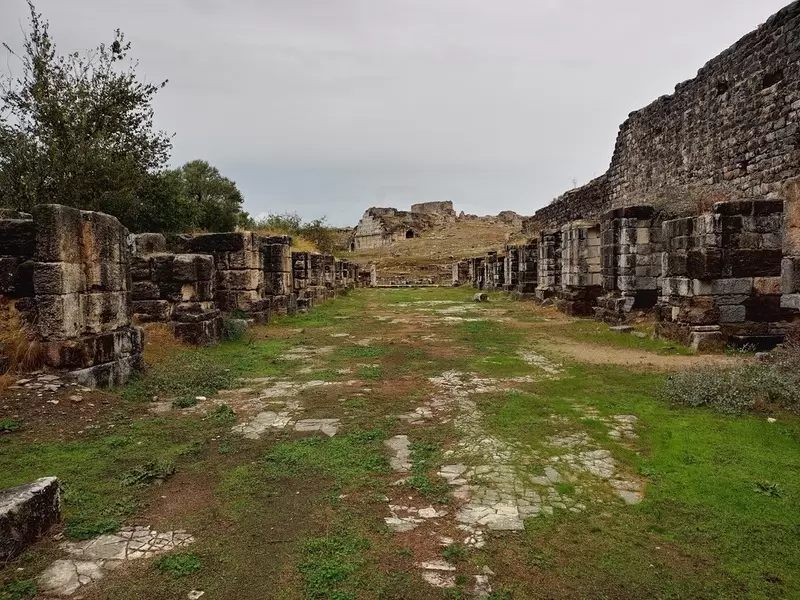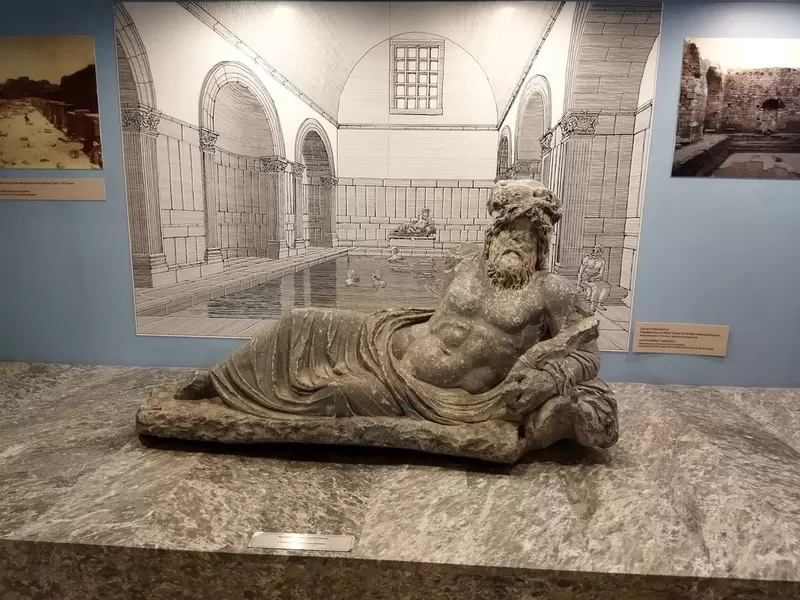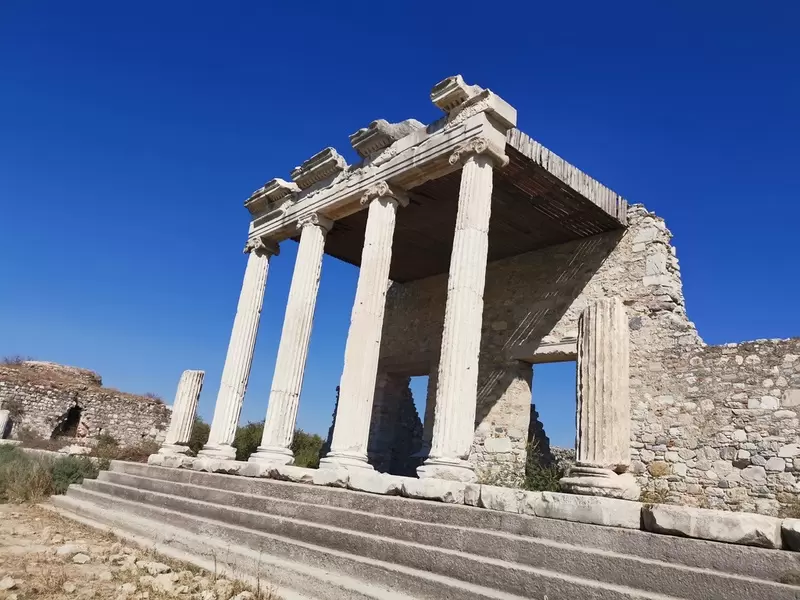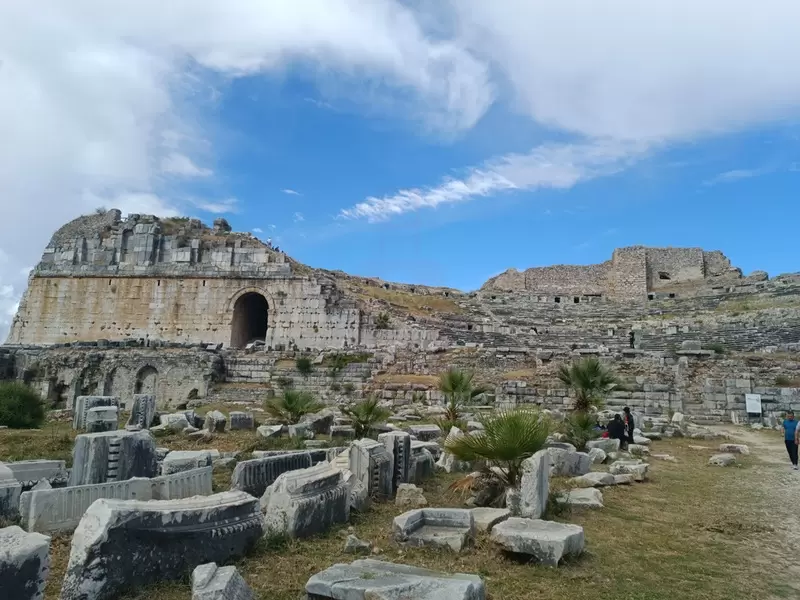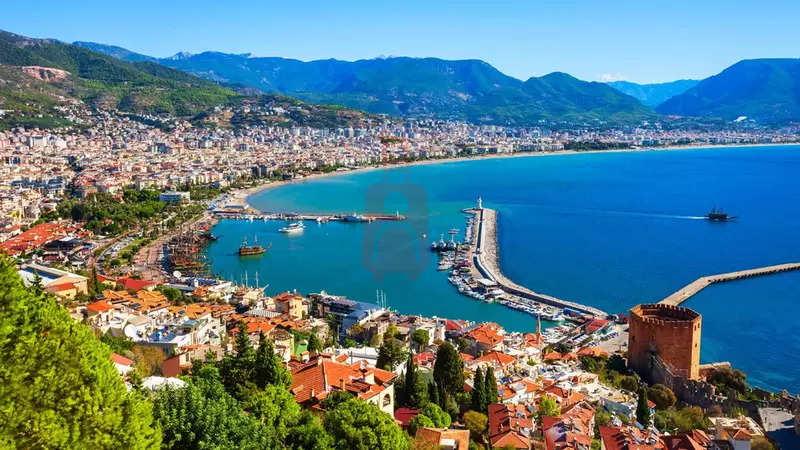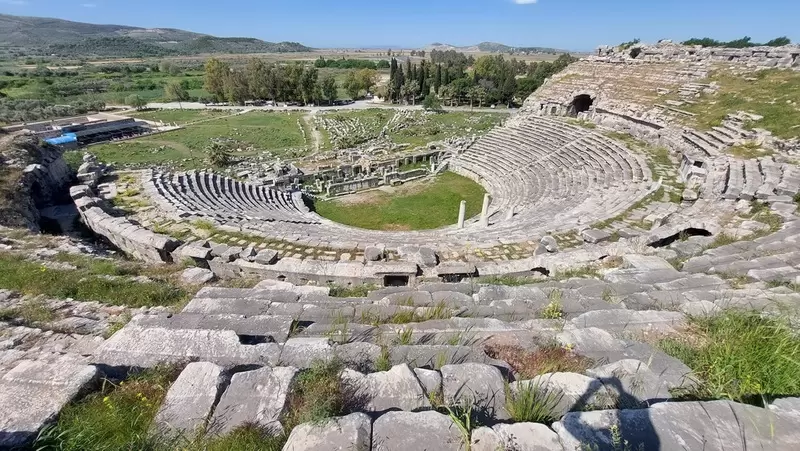
Miletus Ancient City, located in present-day Turkey, is a captivating destination that offers a fascinating glimpse into the rich history of the ancient world. Let's explore some travel and historical details about this remarkable site. Situated near the western coast of Anatolia, Miletus was once a thriving
city and a renowned center of trade, philosophy, and culture.
Travel Information:
Miletus Ancient City is situated on the western coast of Turkey, near the modern town of Akköy, approximately 75 kilometers (47 miles) south of the city of Izmir. The site is easily accessible by road and is well-connected to major transportation routes in the region. Visitors can reach Miletus by hiring a private vehicle, taking a taxi, or joining organized tours from nearby cities.
The history of Miletus dates back to the 11th century BC when it was founded as a coastal settlement by ancient Greek settlers. Over time, the city flourished and became an influential hub of the ancient world. It played a vital role in maritime trade, connecting the Mediterranean with the Black Sea region and beyond.
One of the most impressive features of Miletus is its remarkable theater, which stands as a testament to the city's architectural prowess. This ancient theater, believed to be one of the largest in Anatolia, could accommodate up to 15,000 spectators and hosted various performances and cultural events. As you explore the well-preserved seats and stage, you can almost imagine the vibrant atmosphere that once filled the air with laughter and applause.
Another iconic landmark in Miletus is the Temple of Apollo, a significant religious sanctuary dedicated to the Greek god of light and knowledge. Although only a few columns remain today, the grandeur of the temple is still evident, showcasing the architectural splendor of the ancient Greeks. The Temple of Apollo was not only a place of worship but also a center for oracles and philosophical discussions, attracting scholars and philosophers from all over the ancient world.
Wandering through the ancient city, you will encounter remnants of residential areas, public buildings, and agoras (marketplaces). The grid-like street plan and well-preserved structures provide insights into the urban design and daily life of the ancient inhabitants. Miletus was known for its skilled craftsmen and artisans, producing exquisite pottery, sculptures, and other works of art.
Miletus also holds historical significance beyond its architectural marvels. It was the birthplace of several renowned ancient philosophers and intellectuals, including Thales, Anaximander, and Anaximenes, who played pivotal roles in shaping Western philosophy and scientific thought. The city's intellectual legacy extended to fields such as astronomy, mathematics, and geometry.
Furthermore, Miletus was a crucial player in the Greco-Persian Wars and witnessed the rise and fall of various empires, including the Persian Empire and the Roman Empire. Its strategic location made it a coveted prize for many ancient powers, leading to numerous battles and conquests throughout its history.
Visiting Miletus Ancient City today offers a unique opportunity to step back in time and immerse yourself in the grandeur of ancient Greek civilization. The archaeological site, surrounded by beautiful landscapes, provides a sense of wonder and awe as you explore the remnants of a once-thriving city and contemplate the achievements and legacies of its inhabitants.
Whether you are a history enthusiast, an architecture lover, or simply seeking to unravel the mysteries of the past, Miletus Ancient City offers a captivating journey through time, allowing you to connect with the spirit of an ancient civilization that shaped the course of history.
Upon arrival, visitors are greeted by a vast archaeological site that spans an area of approximately 4 square kilometers (1.5 square miles). The site is open to the public, allowing visitors to explore its ruins and immerse themselves in its ancient ambiance.
Historical Background:
Miletus was one of the most prosperous and influential cities in ancient Greece. Its history dates back to the 11th century BCE when it was initially settled by Ionian Greeks. Over time, the city grew in power and wealth, becoming a prominent center of trade, maritime commerce, and intellectual pursuits.
The city's strategic location on the Aegean Sea contributed to its success as a bustling port and a hub of cultural exchange between the Greek, Persian, and Hellenistic civilizations.
Notable Structures and Landmarks:
As you explore the ruins of Miletus, you'll encounter impressive remnants of ancient architecture that provide valuable insights into the city's past. Some of the notable structures include:
1. The Great Theater: The theater of Miletus is one of the largest ancient theaters in Anatolia, with a seating capacity of approximately 15,000 spectators. It is renowned for its well-preserved stage building and impressive acoustics.
2. The Delphinium: This monumental structure, dedicated to Apollo Delphinios, served as both a temple and a meeting place for the city's council. It featured a colonnaded courtyard and a grand entrance gate.
3. The Faustina Baths: Built during the Roman period, the Faustina Baths were a complex of public baths, showcasing the luxurious lifestyle enjoyed by the city's inhabitants.
4. The Nymphaeum: This ornate fountain was dedicated to the nymphs and served as a symbol of the city's prosperity. Its intricate carvings and decorative elements reflect the artistic excellence of the time.
Historical Significance:
Miletus played a crucial role in shaping the ancient world. The city was a center of intellectual and scientific advancements, producing renowned philosophers, mathematicians, and scientists. It was the birthplace of philosophers such as Thales, Anaximander, and Anaximenes, who laid the foundations of Western philosophy and scientific thought.
Miletus was also a major player in the development of democracy and the spread of Hellenistic culture. Its cultural and commercial influence extended throughout the Mediterranean, making it an important city in the ancient world.
Visiting Miletus today provides an opportunity to witness the remnants of this once-thriving city and gain a deeper understanding of its historical significance.
Conclusion:
Miletus Ancient City stands as a testament to the grandeur and intellectual achievements of the ancient Greek civilization. With its well-preserved ruins and significant landmarks, it offers a captivating journey into the past. Whether you are a history enthusiast or simply seeking to explore the remnants of an ancient world, a visit to Miletus is sure to leave you with a profound appreciation for the rich cultural heritage of the region.
